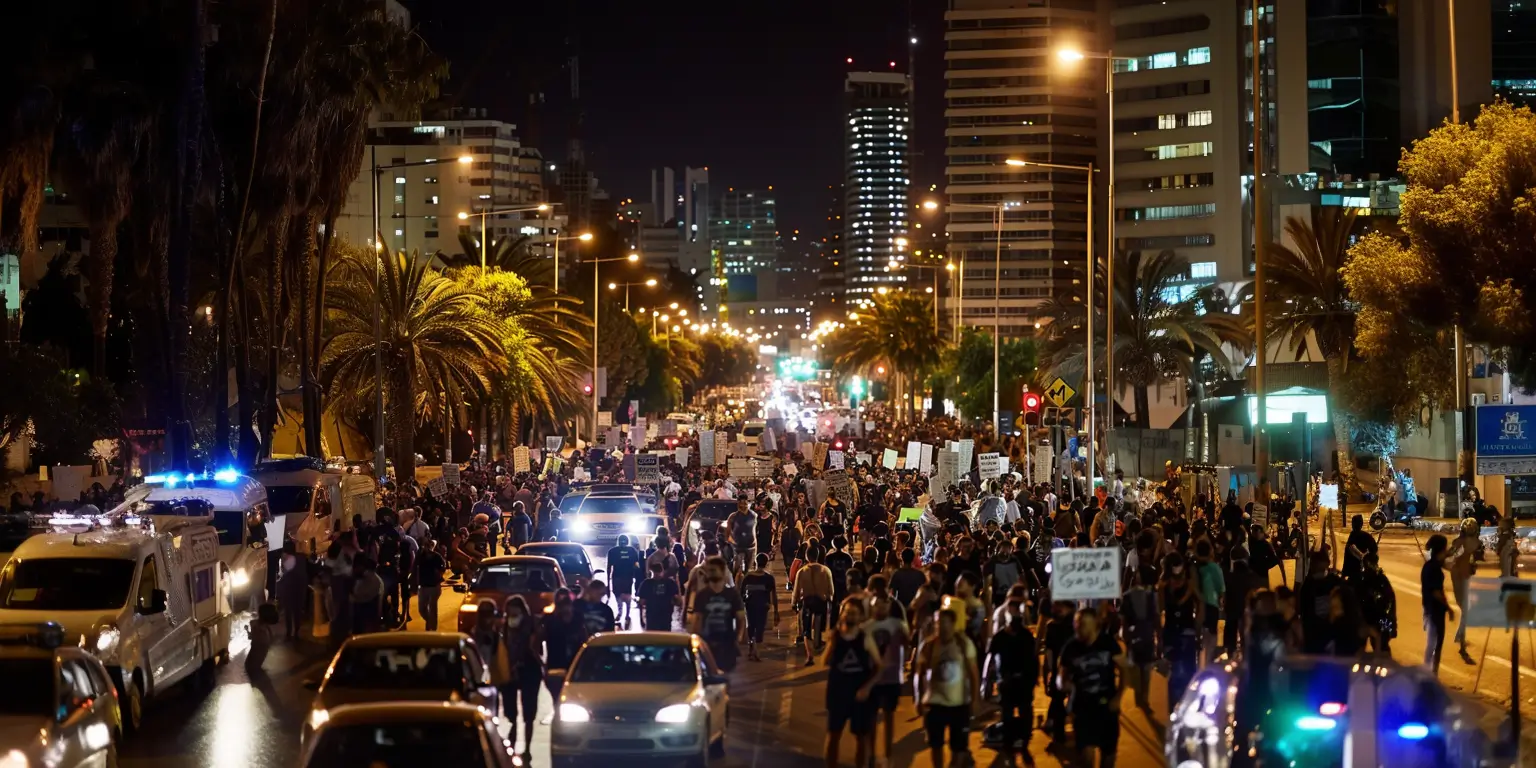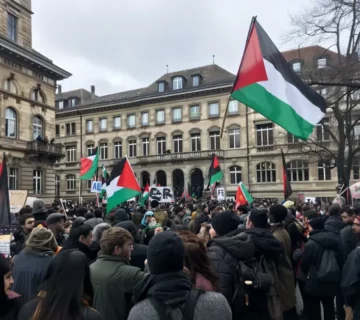In 2024, Israel saw widespread protests, reflecting deep-seated public dissent on issues ranging from leadership and governance to national security and foreign negotiations. These protests underscore the active democratic engagement of Israel’s citizens and highlight the country’s complex political and security challenges.
The Spectrum of Public Dissent
The diverse focus and broad societal involvement characterize the protests in Israel. Each protest arises from unique triggers and involves various demographics, painting a larger picture of Israeli public sentiment in 2024.
Israel Protests About Leadership
Public dissatisfaction with the current leadership’s governance and policy implementation has driven significant protests. Many have voiced accusations of inadequacy, demanding transparency, accountability, substantial political reform, and more effective leadership.
Deal with Hamas and the Release of the Kidnapped
The government’s handling of negotiations with Hamas, especially concerning deals for the release of kidnapped individuals, has sparked considerable controversy and debate. While critics argue that such deals could empower Hamas, supporters emphasize the moral and humanitarian imperative to secure the release of captives. This issue divides the populace deeply, triggering substantial protests from both perspectives.
Protests Supporting Military Actions
Meanwhile, another group within the protests strongly supports military actions to protect the citizens of the State of Israel. Advocating for robust security measures, this segment often supports the government’s decisions to act decisively against threats, emphasizing the state’s right to defend its citizens against external threats.
The Government’s Response
The government’s responses to the protests have varied. They have negotiated and dialogued with protesters and taken firm actions to maintain public order. Balancing the concerns of its citizens while ensuring national security and public safety presents a delicate challenge for the government.
The Impact on National and International Perceptions
These protests significantly impact how both national and international communities view Israel. Domestically, they showcase a vibrant democracy where public opinion significantly influences policy. Internationally, the demonstrations can affect perceptions of Israel as either a stable ally or a country in turmoil, which in turn influences foreign policy and international relations.
Looking Ahead
The future of these protests and their policy impact remains uncertain. However, they are a crucial aspect of Israeli democracy. The government’s ability to respond constructively to these varied demands will be pivotal in determining the country’s path forward. As Israel continues to navigate these challenging waters, the voices of its people, expressed through these protests, will undoubtedly shape its future.
The ongoing protests in Israel remind us of the complexities of governance in a world where security concerns, political leadership, and public welfare are tightly connected. As the situation evolves, the world watches how one of the most dynamic democracies manages waves of public dissent, aiming for stability and justice.



No comment